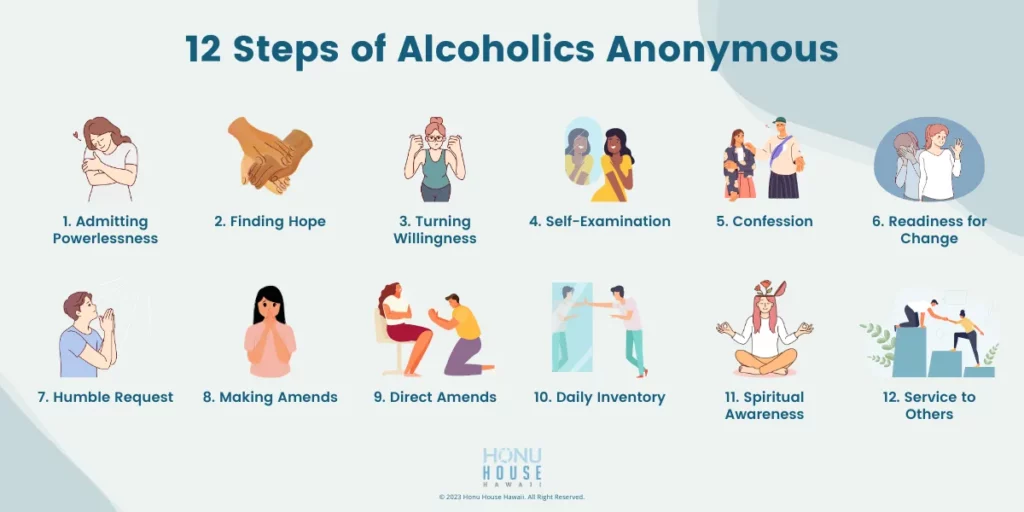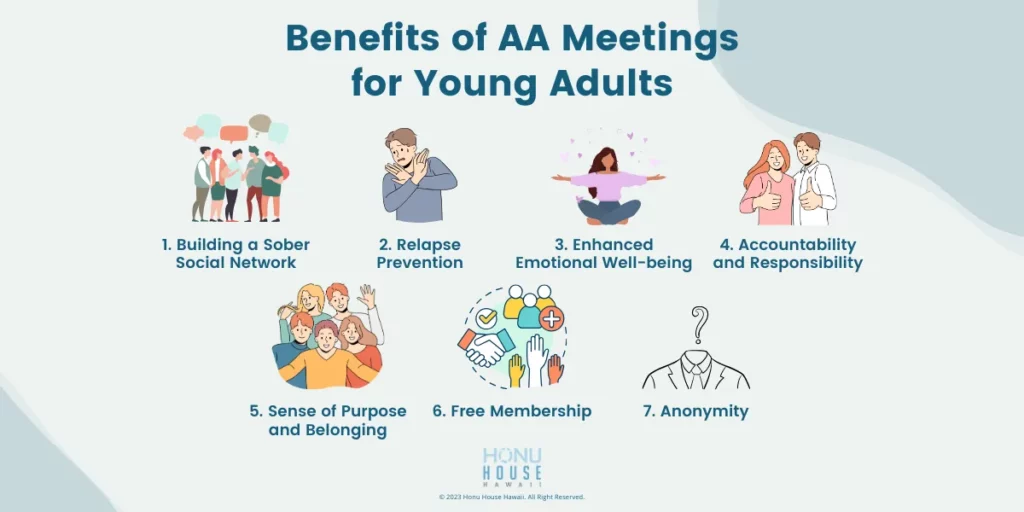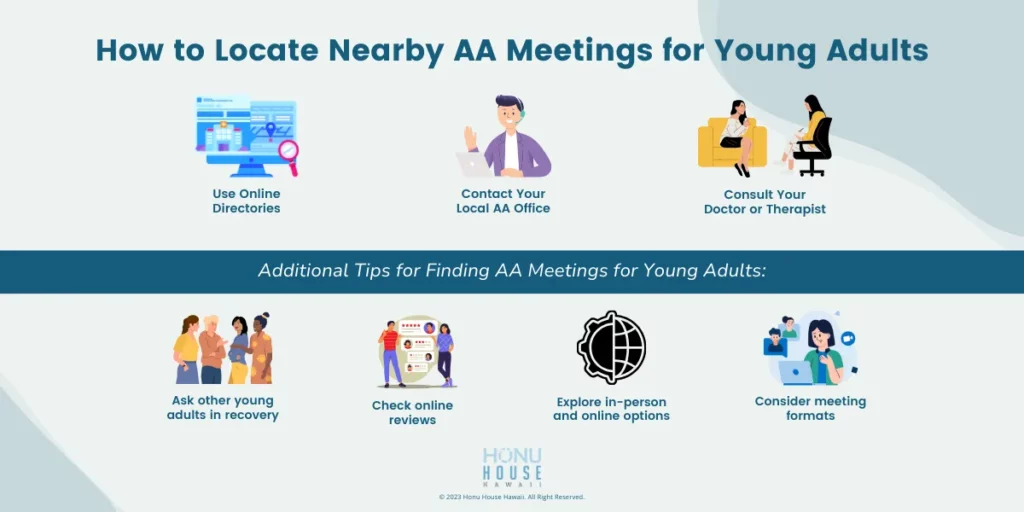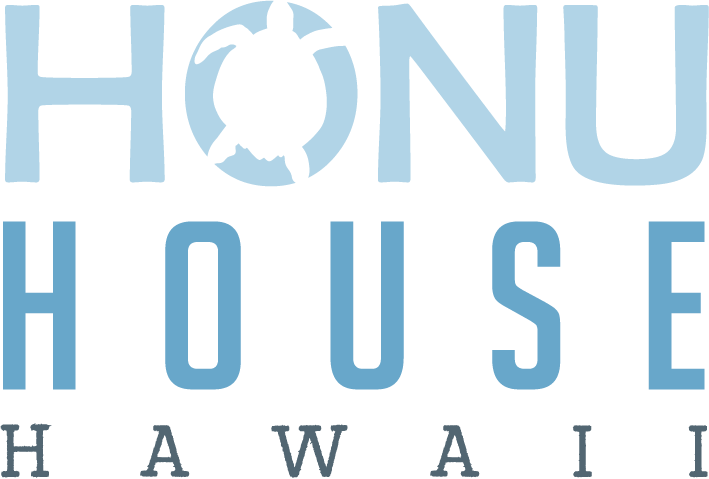
Path to Sobriety With AA Meetings in Hawaii
-
By John Burke
-
December 4, 2023
Alcohol addiction is a serious issue that can affect people of all ages, but it’s especially prevalent among young adults. According to the Centers for Disease Control and Prevention (CDC), binge drinking is most common among adults aged 18 to 34. Worse still, according to the 2021 National Survey on Drug Use and Health, about 1 out of 10 young adults aged 18 to 25 have an alcohol use disorder (AUD).
Fortunately, there is hope for young adults battling alcohol addiction thanks to Alcoholics Anonymous (AA). In this blog post, we’ll explore the profound impact of Hawaii AA meetings on young adults grappling with alcohol addiction. We’ll delve into the role of AA meetings in recovery, their benefits, and how to find AA meetings in Hawaii.
What is Alcoholics Anonymous?
Alcoholics Anonymous, or AA as it’s commonly known was founded in 1935 to help people battling with addiction achieve sobriety. It is a worldwide fellowship of men and women who share their experiences with each other so that they can help others practice abstinence and recover from alcoholism.
Since its inception, AA has helped millions of people achieve sobriety. In the United States, there are about 1.3 million members. For young adults, AA youth recovery groups provide a safe and non-judgmental space where attendees can openly discuss their struggles, fears, and hopes with others looking to break free from the shackles of alcohol addiction.
How AA Meetings Work

AA meetings operate based on various guiding principles, primarily the 12 steps. The 12 steps are pivotal to the AA program and serve as a roadmap for personal growth and recovery. Members are encouraged to work through the 12 steps with the guidance of a sponsor — a more experienced member who provides support and accountability.
While most AA meetings follow a similar format, there are two main types of meetings: open and closed. Open meetings are open to anyone, including people who aren’t struggling with addiction. They are a good option for young adults new to AA who want to learn more about the recovery program before joining it.
Conversely, closed meetings are for AA members only or people who want to stop drinking. They provide a more intimate and supportive space for recovering alcoholics to share their experiences.
Regardless of the type of meeting you attend, you can expect to receive a warm reception from other AA members. After introductions, most meetings start with a reading from AA literature, such as the Big Book of Alcoholics Anonymous. Then, members get the opportunity to share their stories and experiences with addiction and recovery.
Sharing isn’t mandatory, though. However, it can be a helpful way to foster connections with others and learn from their experiences.
Benefits of AA Meetings for Young Adults

AA meetings offer many benefits specifically tailored to young adults battling alcohol addiction. Some of these benefits include:
1. Building a Sober Social Network
One of the biggest obstacles for young adults seeking to achieve sobriety is severing social ties. AA meetings provide a ready-made sober social network. Attendees find new friends who share their commitment to sobriety, replacing old drinking buddies with supportive, like-minded individuals. This shift in social circles can be invaluable for young adults seeking long-lasting recovery and a sober social life in Hawaii.
2. Relapse Prevention
Nearly 8 out of 10 individuals relapse and return to drug use within one year of treatment. AA meetings equip attendees with tools to recognize and prevent relapses. Through shared stories of triumphs and setbacks, young adults learn to identify triggers and develop coping strategies, reducing the risk of relapse.
3. Enhanced Emotional Well-being
Alcohol addiction often affects mental health, leading to anxiety, depression, and low self-esteem. AA meetings offer a platform to discuss and address these emotional challenges. Young adults can express their feelings, gain insight from others who have faced similar issues and work towards healing and self-acceptance.
4. Accountability and Responsibility
Young adults in AA are encouraged to take responsibility for their actions and decisions. This sense of accountability can be incredibly effective, helping them regain control over their lives. The support of sponsors and fellow members reinforces this accountability, providing a safety net during trying times.
5. Sense of Purpose and Belonging
Society often stigmatizes people battling with alcohol and drug addiction. As a result, young adults struggling with addiction often feel unworthy and lack a sense of purpose. AA meetings provide young adults with a sense of belonging and community. For instance, AA meetings in Hawaii give attendees a sense of purpose by allowing them to share their stories to encourage others.
6. Free Membership
AA membership is free, and there is no obligation to join. The only requirement to become an AA member is the desire to stop drinking alcohol.
7. Anonymity
AA meetings emphasize anonymity, creating a safe space where young adults can share their experiences without fear of judgment or disclosure to outsiders. This anonymity fosters trust and open communication among attendees, enabling them to confront their addiction honestly.
How to Locate Nearby AA Meetings for Young Adults

The path to sobriety not only involves finding nearby AA meetings for young adults but also selecting those that align with individual needs and preferences. That said, here’s how you can find AA meetings for young people in Hawaii:
Use Online Directories
The Internet has made it easier than ever to find AA meetings. Check the AA website or dedicated recovery apps for a list of AA meetings near you. These resources provide comprehensive lists of meetings based on geographical locations, making it convenient for young adults to find nearby gatherings.
Contact Your Local AA Office
Call your local AA office to find AA meetings near you. AA offices keep a list of all the AA meetings in their area, including meetings tailored to young adults, such as AA for Millennials meetings. You can find the contact details for your local AA office on the AA website.
Consult Your Doctor or Therapist
Ask your physician or therapist for recommendations. Many physicians and therapists are familiar with AA and can recommend meetings specifically for young adults.
Here are some additional tips for finding an AA meeting for young adults:
Ask other young adults in recovery: If you know other young adults in recovery, ask them if they can recommend a meeting. They may be able to tell you about meetings they have attended and enjoyed.
Check online reviews: Many AA groups have online platforms or social media pages where young adults share their experiences. Read reviews to find meetings that align with your values and expectations.
Explore in-person and online options: Consider whether in-person or online meetings suit your preferences and circumstances. In-person meetings offer face-to-face connections and a tangible sense of community, while online meetings provide flexibility, allowing participation from anywhere. If you have a busy schedule or limited transportation options, you may find online meetings more convenient.
Consider meeting formats: Consider whether open or online meetings suit your preferences. Online meetings allow anyone to attend, making them ideal for newcomers to AA who want to determine if it’s ideal for them. On the other hand, closed meetings are better suited for individuals grappling with alcohol addiction and looking to share their intimate experiences in a safe, non-judgmental space.
Conclusion
Breaking free from the shackles of alcohol addiction is difficult, but it isn’t impossible. By combining AA meetings with other interventions like alcohol detox and a residential treatment program, recovering addicts stand a higher chance of staying alcohol-free.
If you are a young adult battling addiction or have a loved one grappling with addiction, we can help. Contact us today to learn more about our alcohol addiction treatment program and start your journey toward a brighter, sober future.
FAQs
Can I Attend AA Meetings if I’m Not Sure I Have a Drinking Problem?
Yes. Open AA meetings welcome individuals who are uncertain about their relationship with alcohol. Attending can provide valuable insights and help you determine whether you identify with the experiences shared.
Is AA Affiliated With Any Religious Body?
AA isn’t affiliated with any specific religion. Though the organization has religious roots, it doesn’t consider itself religious. People of all religions and even those without religious affiliations attend AA meetings. AA emphasizes spirituality rather than adhering to any particular religious doctrine.
What Happens During an AA Meeting?
While AA meeting structure may vary from meeting to meeting, most meetings involve sharing experiences related to alcohol addiction and recovery. Many meetings follow a structured format, including discussions from AA literature like the Big Book of Alcoholics Anonymous, personal reflections, and supportive interactions with fellow members.
How Do I Choose the Right AA Meeting for Me?
Consider factors such as the meeting format (open or closed), location (in-person or online), and whether the meeting is tailored to young adults. Generally, you might want to explore different meetings until you find a group that resonates with you.
What Is the Difference Between AA and CBT?
Alcoholics Anonymous (AA) and Cognitive Behavioral Therapy (CBT) are distinct approaches to treating alcohol addiction. AA emphasizes community support and spirituality through its 12-step program. On the other hand, CBT is a therapeutic approach that focuses on identifying and changing patterns of thought and behavior. Often, individuals integrate both techniques for comprehensive recovery.
